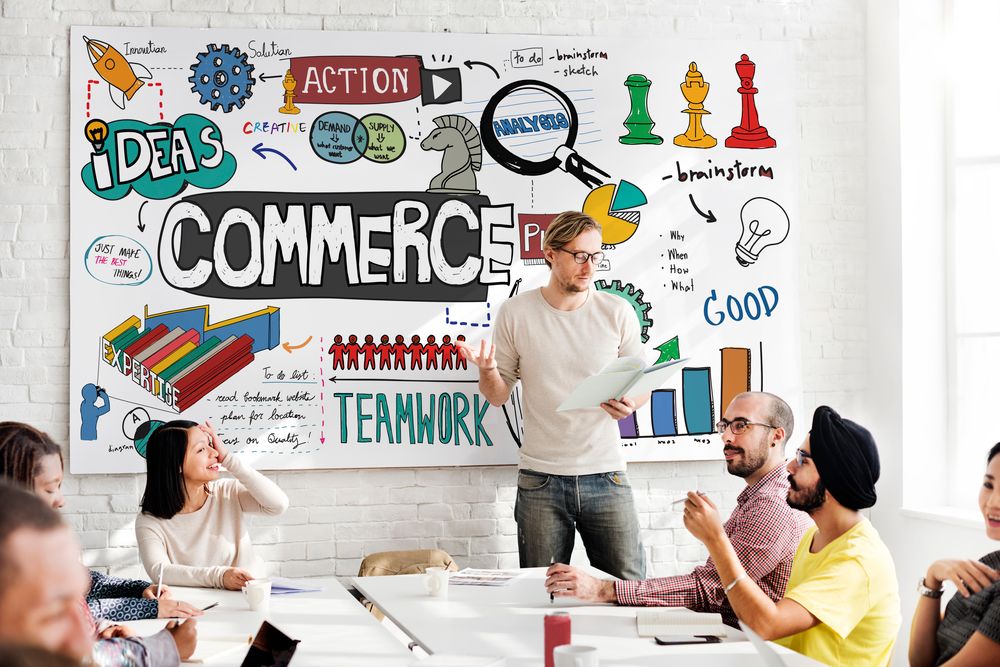
In today's fast-paced and competitive business world, employee recognition holds the key to fostering a motivated and engaged workforce. As a leader, recognizing the hard work and achievements of your employees is not only a gesture of appreciation but also a powerful tool to boost morale and productivity. From simple acts of appreciation to grand gestures of recognition, there are countless examples of how employee recognition can make a significant impact on your team's performance and overall success.
Employee recognition goes beyond just saying "thank you." It is about acknowledging the unique contributions of each individual, empowering them to take ownership of their work, and inspiring them to go above and beyond. By creating a culture of recognition, you can cultivate a sense of belonging and loyalty within your team, driving them to perform at their best. In this blog, we will explore a wide range of recognition examples for employees that will not only make them feel valued but also ignite their passion for achieving greatness. So, get ready to discover the power of employee recognition and unlock the full potential of your team.
73 Simple But Effective Recognition Examples for Employees

1. Kudos Corner
Create a dedicated physical or virtual space where you can publicly recognize outstanding employees and their accomplishments.
2. Team Shout-Outs
Encourage team members to recognize and praise each other's efforts during team meetings or through a dedicated communication channel.
3. Personalized Notes
Write handwritten thank-you notes to individual employees, acknowledging their specific contributions and expressing gratitude.
4. Weekly Spotlight
Choose one employee each week to highlight their achievements and share their success stories with the entire team.
5. Wall of Fame
Create a display in the office with photos or plaques honoring employees who have gone above and beyond in their work.
6. Employee of the Month
Establish a monthly award program to recognize exceptional performance and reward the selected employee with a special prize or incentive.
7. Milestone Celebrations
Celebrate significant milestones such as work anniversaries or project completions with personalized gifts or small parties.
8. Global Recognition
Use video conferencing or company-wide emails to acknowledge outstanding employees across different locations or departments.
9. Lunch with the CEO
Give high-performing employees the opportunity to have a one-on-one lunch with the CEO or another top executive.
10. Supportive Supervisor
Encourage managers to regularly provide positive feedback and recognize employees' efforts in team meetings or one-on-one conversations.
11. Learning Opportunities
Recognize employees who show a strong desire to learn and grow by sponsoring their participation in training programs or conferences.
12. Surprise Treats
Surprise employees with unexpected treats such as pizza parties, ice cream socials, or breakfast snacks to show appreciation for their hard work.
13. Publicly Share Wins
Share success stories and achievements of employees through the company newsletter, social media platforms, or internal blogs.
14. Performance Bonuses
Provide financial rewards or bonuses to employees who consistently exceed performance expectations.
15. Innovation Awards
Recognize employees who come up with innovative ideas or solutions that significantly improve the company's operations or products.
16. Flexible Work Arrangements
Reward top performers with the opportunity to have flexible work schedules or telecommuting options.
17. Peer Mentoring
Acknowledge employees who willingly share their knowledge and expertise with their colleagues, fostering a culture of collaboration and growth.
18. Volunteer Recognition
Recognize employees who actively participate in volunteering activities by highlighting their contributions and impact on the community.
19. Wellness Rewards
Offer wellness programs or incentives to employees who prioritize their physical and mental well-being.
20. Endorse on LinkedIn
Publicly endorse an employee's skills and accomplishments on LinkedIn to showcase their expertise to a wider audience.
21. Social Media Shout-Out
Give employees a shout-out on social media platforms, expressing appreciation for their hard work and dedication.
22. Professional Development Grants
Offer financial support for employees to pursue further education or professional certifications.
23. On-the-Spot Rewards
Give immediate recognition and rewards, such as gift cards or small tokens of appreciation, for exceptional performance or acts of kindness.
24. Gamification
Implement gamified systems where employees can earn badges, points, or levels for achieving specific goals or milestones.
25. Cross-Departmental Collaboration
Recognize employees who actively collaborate with colleagues from different departments to achieve common goals.
26. Project Completion Awards
Celebrate the successful completion of challenging projects by recognizing the entire team's contributions and hard work.
27. Idea Box
Provide a platform for employees to share their ideas and suggestions, and recognize those whose ideas are implemented and generate positive results.
28. Celebration Emails
Send company-wide emails acknowledging individual or team achievements, fostering a culture of celebration and recognition.
29. Personalized Rewards
Tailor rewards each employee's preferences and interests, showing that their individual contributions are valued.
30. Thank-You Videos
Create short videos where team members express their gratitude and appreciation for specific colleagues' contributions.
31. Peer-to-Peer Recognition
Establish a program where employees can nominate and recognize their peers for exceptional work or acts of kindness.
32. Public Speaking Opportunities
Recognize employees by giving them the chance to represent the company at industry conferences or events as a speaker or panelist.
33. Employee Empowerment
Acknowledge employees who take initiative and lead projects or initiatives, giving them increased responsibility and authority.
34. Mentorship Programs
Pair experienced employees with less experienced ones to provide guidance and support, recognizing both mentors and mentees for their commitment.
35. Customer Testimonials
Share positive customer feedback that specifically mentions an employee's outstanding service or contribution.
36. Innovation Time-Off
Allocate dedicated time for employees to work on innovative projects or personal development outside their regular responsibilities.
37. Departmental Awards
Recognize exceptional performance within specific departments or teams, highlighting their unique contributions.
38. Personal Development Plans
Work with employees to create personalized development plans, recognizing their aspirations and helping them achieve their career goals.
39. Employee Appreciation Events
Organize special events or outings to show gratitude to the entire workforce, fostering a sense of camaraderie and teamwork.
40. Social Recognition Platforms
Utilize online platforms where employees can publicly recognize and appreciate their colleagues' efforts, fostering a culture of continuous recognition.
41. Highlighted Achievements
Create a section on the company website or intranet dedicated to showcasing employees' achievements and milestones.
42. Extended Breaks
Reward employees with extra time off or extended lunch breaks as a token of appreciation for their hard work and dedication.
43. Team Building Activities
Organize team-building exercises or off-site retreats to reward and recognize team collaboration and accomplishments.
44. Increased Autonomy
Give high-performing employees more independence and decision-making authority, recognizing their ability to handle responsibilities effectively.
45. Leadership Development Programs
Identify potential future leaders within the organization and provide them with mentorship, training, and recognition.
46. Innovation Contests
Encourage employees to participate in innovation challenges or contests, recognizing their creative solutions and awarding prizes to winners.
47. Workspace Upgrades
Improve employees' work environment by providing ergonomic equipment, comfortable seating, or personalized desk accessories as a form of recognition.
48. Community Spotlight
Recognize employees who actively engage with and contribute to the local community, showcasing their positive impact outside of work.
49. Personal Growth Recognition
Acknowledge employees who have demonstrated personal growth and improvement in their skills or knowledge.
50. Wellness Challenges
Create friendly competitions or challenges related to health and wellness, recognizing participants for their commitment and progress.
51. Certificate of Achievement
Present employees with personalized certificates highlighting their specific accomplishments or contributions.
52. Employee Appreciation Cards
Design and distribute unique, branded cards that employees can give to each other to express gratitude and recognition.
53. Professional Memberships
Sponsor employees' membership in professional organizations related to their field, shows recognition for their commitment to professional development.
54. Inclusion Awards
Recognize employees who actively promote diversity, inclusion, and a positive work environment, fostering a sense of belonging for all.
55. Innovation Showcases
Organize events or presentations where employees can share their innovative ideas or projects with the broader organization, receiving recognition for their creativity.
56. Positive Feedback Wall
Create a physical or virtual wall where employees can post positive feedback, recognizing each other's contributions on an ongoing basis.
57. Employee Referral Rewards
Incentivize employees to refer qualified candidates for job openings by offering rewards or bonuses for successful hires.
58. Continuous Learning Rewards
Establish a system where employees earn points or rewards for completing online courses, attending workshops, or obtaining certifications.
59. Leadership Luncheons
Invite high-performing employees to have lunch with senior leaders to recognize their achievements and provide networking opportunities.
60. Innovation Labs
Set aside dedicated spaces where employees can brainstorm, experiment, and collaborate on innovative projects, recognizing their contributions to the company's growth.
61. Social Responsibility Recognition
Recognize employees who actively participate in sustainability initiatives or corporate social responsibility activities, highlighting their commitment to making a positive impact.
62. Thought Leadership Platforms
Showcase employees' expertise by providing opportunities for them to speak at industry conferences or contribute articles to publications.
63. Learning and Development Awards
Recognize employees who consistently invest in their professional growth and actively seek out learning opportunities.
64. Continuous Improvement Initiatives
Acknowledge employees who contribute ideas for process improvements or cost-saving measures, recognizing their commitment to driving efficiency.
65. Excellence in Customer Service
Highlight employees who consistently deliver exceptional customer service, showcasing their dedication to customer satisfaction.
66. Innovation Retreats
Organize retreats or workshops focused on fostering innovation and creativity, recognizing employees' involvement and contributions.
67. Employee Voice Surveys
Conduct regular surveys to gather feedback and suggestions from employees, recognizing those whose ideas lead to positive changes within the company.
68. Collaboration Champions
Recognize employees who excel at collaborating with others, creating a culture of teamwork and synergy.
69. Leadership Awards
Acknowledge employees who demonstrate exceptional leadership qualities, inspiring their peers and driving positive change within the organization.
70. Wellness Challenges
Create friendly competitions or challenges related to health and wellness, recognizing participants for their commitment and progress.
71. Certificate of Achievement
Present employees with personalized certificates highlighting their specific accomplishments or contributions.
72. Employee Appreciation Cards
Design and distribute unique, branded cards that employees can give to each other to express gratitude and recognition.
73. Professional Memberships
Sponsor employees' membership in professional organizations related to their field, showing recognition for their commitment to professional development.
Related Reading
• How To Improve Employee Morale • How To Motivate Your Team • Benefits Of Employee Recognition • Why Is Employee Recognition Important • Employee Recognition Benefits • How To Improve Employee Satisfaction • Culture Of Recognition In The Workplace • Employee Recognition Statistics • Best Practices For Employee Recognition • Employee Anniversary Recognition
Informal Recognition Methods You Should Try Out

Creating a positive work culture is no easy feat. It requires a delicate balance of effective leadership, open communication, and a deep appreciation for employee contributions. While formal recognition programs have their place, it's often the informal methods that truly make a difference. Peer-to-peer recognition and spontaneous acknowledgments are two such methods that can have a profound impact on workplace morale and camaraderie. Let's explore how these practices contribute to a positive work culture.
Acknowledging Excellence
Peer-to-peer recognition, as the name suggests, is all about employees acknowledging and appreciating their colleagues' efforts. It's a powerful tool because it taps into the intrinsic human need for validation and connection. When peers recognize each other's accomplishments, it fosters a sense of belonging and camaraderie that strengthens the fabric of the organization.
Fueling Success
This form of recognition works wonders for employee engagement. When individuals feel valued and appreciated by their peers, they are more likely to go above and beyond in their work. It creates a positive feedback loop where recognition fuels motivation, and increased motivation leads to higher performance. By empowering employees to recognize and celebrate each other's achievements, organizations can unleash a powerful force that propels them toward success.
Building Bridges
Peer-to-peer recognition helps build a culture of trust and collaboration. When employees feel comfortable acknowledging each other's contributions, it fosters an environment where ideas can flow freely, and diverse perspectives can thrive. This, in turn, leads to innovation and creative problem-solving, as different voices and experiences come together to tackle challenges.
Brightening Workdays
Spontaneous acknowledgments, on the other hand, are those unexpected acts of recognition that can brighten someone's day. A spontaneous acknowledgment could be as simple as a quick email thanking a colleague for their assistance or a shout-out during a team meeting. These small gestures have the power to uplift spirits and reinforce a culture of appreciation.
Supportive and Positive Environment
By incorporating spontaneous acknowledgments into the fabric of everyday work life, organizations can create a supportive and positive environment. It shows employees that their efforts are noticed and valued, even in the midst of daily tasks and deadlines. This type of recognition also helps combat the monotony that can sometimes creep into the workplace, injecting moments of joy and celebration into the routine.
Informal recognition methods like peer-to-peer recognition and spontaneous acknowledgments play a crucial role in shaping a positive work culture. They foster employee engagement, build trust and collaboration, and create a supportive environment where individuals feel valued and appreciated. By harnessing the power of these practices, organizations can cultivate a workplace that thrives on recognition and propels its employees toward success.
The Importance of Personalized Recognition Efforts

In the world of employee recognition, one size does not fit all. While standardized or generic approaches may seem efficient or cost-effective, they lack the personal touch that truly motivates and engages employees. Personalized recognition is the key to unlocking employee potential and fostering a positive work culture. Let's delve into the significance of personalized recognition and understand why it should be the cornerstone of any employee recognition program.
1. Tailored to Individual Preferences
Imagine receiving a generic thank-you note from your boss. It might make you feel acknowledged, but it doesn't truly resonate with you. On the other hand, if your boss remembers your love for a certain type of coffee and surprises you with a gift card to your favorite café, you feel seen and appreciated at a whole new level. Personalized recognition takes into account individual preferences, making it more meaningful and memorable for employees. By tailoring recognition to each individual, employers demonstrate that they value and understand their employees on a deeper level.
2. Increases Employee Satisfaction and Engagement
When employees feel genuinely appreciated and recognized for their unique contributions, their satisfaction and engagement levels soar. A study by Harvard Business Review found that employees who receive personalized recognition are three times more likely to feel valued at their jobs. This sense of value translates into improved morale, increased motivation, and a stronger commitment to their work. By investing in personalized recognition, employers create a positive work environment that fosters employee loyalty and productivity.
3. Boosts Employee Retention
As the saying goes, "People don't leave companies, they leave managers." Personalized recognition plays a crucial role in employee retention by strengthening the bond between employees and their managers. When employees feel seen, appreciated, and acknowledged, they are more likely to stay with the company. According to a survey conducted by Globoforce, 78% of employees who receive personalized recognition are more likely to stay with their current employer. By prioritizing personalized recognition, employers can reduce turnover rates and retain top talent.
4. Drives Performance and Innovation
Personalized recognition goes beyond mere acknowledgment; it fuels performance and fosters innovation. When employees know that their efforts are noticed and valued, they become more motivated to excel in their roles. The personalized recognition not only celebrates past achievements but also sets the stage for future growth and development. Employees who feel recognized are more likely to go the extra mile, take on challenges, and come up with creative solutions. By recognizing and rewarding individual achievements, employers create a culture of excellence and drive continuous improvement.
5. Builds a Positive Work Culture
A positive work culture is the bedrock of a successful organization. Personalized recognition plays a pivotal role in shaping and nurturing this culture. When employees witness their peers being recognized for their efforts, it creates a ripple effect of positivity, collaboration, and support. Personalized recognition fosters a sense of camaraderie and teamwork, leading to enhanced productivity and overall employee satisfaction.
Personalized recognition surpasses standardized or generic approaches in its ability to motivate, engage, and retain employees. By tailoring recognition to individual preferences, employers demonstrate their understanding and appreciation for their employees. This leads to increased employee satisfaction, engagement, and retention. Personalized recognition also drives performance, and innovation, and contributes to the development of a positive work culture. So, let's make recognition personal, embrace its power, and unlock the full potential of our employees.
How To Create Team-Based Recognition Initiatives

In today's competitive business landscape, companies are constantly striving to foster positive team dynamics and encourage collaboration amongst their employees. One effective way to achieve this is through the implementation of team-based recognition initiatives. These programs not only recognize individual achievements but also emphasize the importance of teamwork and collective success. Let's take a closer look at how companies incorporate such initiatives and the impact they have on team dynamics and collaboration.
Creating a Culture of Appreciation
By introducing team-based recognition programs, organizations create a culture of appreciation that celebrates both individual and collective contributions. These initiatives typically involve acknowledging the efforts of entire teams or departments to achieve specific goals or milestones. This helps employees feel valued and recognized for their hard work, leading to increased job satisfaction and overall engagement.
Promoting Collaboration and Cooperation
Team-based recognition initiatives have a significant impact on team dynamics by promoting collaboration and cooperation. When employees are recognized for their collaborative efforts, it reinforces the importance of working together towards a common goal. This recognition not only strengthens existing bonds but also encourages individuals to seek out opportunities to collaborate with their peers. As a result, team members become more motivated to share knowledge, support one another, and develop innovative solutions collectively.
Fostering a Sense of Belonging
Recognition programs that highlight team achievements foster a sense of belonging among employees. When individuals are acknowledged for their contributions, they feel a sense of pride and ownership in the team's success. This sense of belonging encourages employees to align their personal goals with those of the team, leading to increased motivation and commitment. By fostering a collaborative environment where everyone feels valued, organizations can cultivate a strong sense of camaraderie and loyalty amongst their employees.
Sparking Healthy Competition
While team-based recognition initiatives emphasize teamwork, they can also spark healthy competition among teams within the organization. By recognizing the achievements of different teams, organizations create an environment where healthy competition encourages individuals to strive for excellence. This can lead to increased productivity, as teams challenge themselves to outperform one another while maintaining a spirit of collaboration and support.
Enhancing Communication and Feedback
Effective team-based recognition programs provide opportunities for open communication and feedback. Regular team meetings or feedback sessions allow team members to express their appreciation for their colleagues' efforts, share ideas, and provide constructive feedback. This not only strengthens communication channels but also enhances the overall feedback culture within the organization. By encouraging open dialogue, team-based recognition initiatives contribute to continuous improvement and learning.
Incorporating team-based recognition initiatives is a powerful way for companies to boost team dynamics and collaboration. By creating a culture of appreciation, promoting collaboration and cooperation, fostering a sense of belonging, sparking healthy competition, and enhancing communication and feedback, organizations can create an environment where teams thrive, leading to increased productivity, innovation, and overall success.
The Psychological Impact of Recognition On Employee Satisfaction

Recognition is a powerful tool that can have a profound impact on employee satisfaction. When employees feel appreciated and recognized for their hard work and contributions, it boosts their morale and overall satisfaction with their job. This is because recognition validates their efforts, providing a sense of accomplishment and pride in their work.
Fueling the Fire: How Recognition Drives Employee Motivation
Recognition not only boosts employee satisfaction but also fuels their motivation. When employees receive recognition, it serves as a form of positive reinforcement, incentivizing them to continue performing at a high level. Recognition acknowledges their efforts and encourages them to go above and beyond in their work. It creates a sense of purpose and drive, motivating employees to excel and achieve their goals.
The Ripple Effect: Recognition and Overall Job Performance
The impact of recognition goes beyond just satisfaction and motivation; it extends to overall job performance. When employees feel valued and appreciated, it enhances their commitment and engagement with their work. Recognition fosters a positive work environment, leading to increased productivity, efficiency, and quality of work. Employees who are recognized are more likely to take pride in their work, resulting in improved performance and outcomes for the organization.
The Power of Personalization: Tailoring Recognition Examples for Employees
Personalized recognition examples have an even greater impact on employee satisfaction, motivation, and job performance. Understanding each employee's individual strengths, preferences, and achievements allows for more meaningful and impactful recognition. Tailoring recognition to each employee creates a personal connection, making them feel valued and appreciated on a deeper level.
Celebrating Milestones: Recognizing Employee Achievements
Recognizing employee achievements and milestones is another effective way to boost satisfaction, motivation, and job performance. Whether it's reaching sales targets, completing a project successfully, or hitting a certain tenure, celebrating these milestones shows employees that their hard work and dedication are recognized and valued. Milestone recognition not only boosts morale but also encourages continued growth and performance.
Peer-to-Peer Recognition: The Power of Colleague Appreciation
In addition to formal recognition from managers and supervisors, peer-to-peer recognition plays a crucial role in fostering a positive work culture. When employees are recognized by their colleagues for their contributions and achievements, it creates a sense of camaraderie and teamwork. Peer recognition enhances employee satisfaction, motivation, and job performance by promoting a supportive and encouraging work environment.
Recognition has a significant psychological impact on employee satisfaction, motivation, and overall job performance. By boosting morale, fueling motivation, and fostering a positive work environment, recognition examples for employees can lead to increased satisfaction, engagement, and productivity. Personalized recognition, celebrating milestones, and peer-to-peer appreciation all contribute to creating a culture of recognition that drives individual and organizational success.
Ethical Considerations To Ensure Fairness In Your Recognition Program
Recognition programs are designed to motivate and reward employees for their hard work and contributions to the organization. It is essential to ensure that these programs are fair and free from bias or favoritism. Failing to do so can lead to demotivation, resentment, and a decrease in employee morale. Let's take a closer look at the ethical considerations associated with recognition programs and how organizations can address them.
1. Transparency in the Selection Process
Transparency in the selection process is crucial to ensuring fairness in recognition programs. Employees should be aware of the criteria and processes used to determine who receives recognition. By being transparent, organizations can prevent suspicions of favoritism and foster a sense of trust and equity among employees. Communicating the selection process clearly and openly will help employees understand that recognition is based on objective criteria and not personal preferences.
2. Objective and Measurable Criteria
Using objective and measurable criteria for recognition is another way to ensure fairness. This means that recognition should be based on specific accomplishments or milestones that can be quantified and evaluated objectively. Organizations should establish clear benchmarks and metrics for recognition, enabling employees to strive towards clear goals and objectives. By removing ambiguity and subjectivity from the process, organizations can mitigate the risk of bias and ensure that recognition is based on merit.
3. Inclusive and Diverse Recognition
To avoid bias or favoritism, recognition programs should be inclusive and celebrate the contributions of all employees. This means recognizing employees from different departments, levels, and backgrounds. By acknowledging and appreciating the diverse talents and perspectives within the organization, recognition programs can foster a culture of inclusivity and fairness. It is essential to avoid favoring certain individuals or cliques and instead create a platform where everyone has a chance to be recognized and celebrated.
4. Consistency in Recognition
Consistency is key to ensuring fairness in recognition programs. Organizations must establish consistent guidelines and standards for recognition across all departments and levels. This ensures that all employees have an equal opportunity to be recognized for their efforts, regardless of their position or job role. Consistency helps prevent the perception of bias or favoritism when it comes to determining who receives recognition. By treating all employees fairly and consistently, organizations can create a positive and motivating work environment.
5. Anonymous Nominations and Peer Recognition
Anonymous nominations and peer recognition programs can be effective tools for avoiding bias and favoritism. By allowing employees to nominate their peers for recognition, organizations can tap into the collective wisdom and perspective of the entire workforce. Anonymous nominations help eliminate personal biases and ensure that recognition is based solely on the merits of the individual's contributions. Incorporating peer recognition encourages a collaborative and supportive culture where employees uplift and appreciate each other's efforts.
Recognition programs have the potential to boost employee morale and motivation. Organizations must be mindful of the ethical considerations associated with these programs. By ensuring transparency, using objective criteria, celebrating diversity, maintaining consistency, and incorporating anonymous nominations and peer recognition, organizations can avoid bias and favoritism and create a fair and inclusive recognition culture that motivates and engages all employees.
Related Reading
• Employee Recognition Awards • Employee Recognition Examples • Employee Rewards And Recognition • Employee Recognition Letter • Employee Recognition Day • Employee Rewards Examples • Employee Rewards And Recognition Program Examples • Creative Employee Recognition Ideas • Employee Recognition Programs Examples • Examples Of Employee Recognition Awards • Employee Recognition Program Names • Types Of Employee Recognition • Employee Recognition Survey Questions • Employee Recognition Criteria • Employee Recognition Gifts • Employee Recognition Wall Ideas • Employee Recognition Gifts for Years of Service • Employee Recognition Points System • Virtual Employee Recognition Ideas
Find Meaningful Corporate Gifts for Employees With Ease with Giftpack

At Giftpack, we believe that every individual is unique, and so should be their gift. We understand the challenges faced by businesses when it comes to finding the perfect gift for their employees. That's why we have dedicated ourselves to simplifying the corporate gifting process while ensuring that each gift has a lasting impact.
Our Secret Ingredient: The Custom AI Algorithm
One of the key features that sets Giftpack apart is our custom AI algorithm. This powerful tool allows us to create highly customized scenario swag box options for you. By carefully considering an individual's basic demographics, preferences, social media activity, and digital footprint, we tailor each gift selection process to perfection. Whether you're looking to reward an employee for their outstanding performance or surprise a client with a thoughtful gesture, our algorithm ensures that the gift is just right.
A World of Possibilities: Our Vast Catalog
With over 3.5 million products in our catalog and counting, Giftpack offers an unparalleled range of options. We curate the most fitting gifts from both local and global sources, ensuring that personalized gifting is accessible and achievable on a large scale. From luxury items to practical gadgets, we have something for everyone.
Global Delivery: No Boundaries, Just Connections
We understand that recognition knows no boundaries, which is why we offer global delivery. Whether your employees are scattered across different locations or you have international clients to impress, Giftpack ensures that your personalized gifts reach their destination, no matter where it is.
User-Friendly Platform: Intuitive and Efficient
Navigating through our platform is a breeze. We believe that the gifting process should be as enjoyable as receiving the gift itself. That's why we have designed our platform to be user-friendly and intuitive. With just a few clicks, you can create personalized gift scenarios, select the perfect items, and have them delivered with ease.
Meaningful Connections: Making a Lasting Impression
At Giftpack, we understand the power of a thoughtful and personalized gift. It goes beyond the materialistic aspect and creates meaningful connections. By recognizing and appreciating your employees, clients, and loved ones in a unique and personalized way, you can strengthen your relationships and leave a lasting impression.
So, whether you're looking to reward your employees for their hard work, impress your clients with thoughtful gestures, or show your loved ones how much you care, Giftpack is here to make it happen. With our custom AI algorithm, vast catalog, global delivery, and user-friendly platform, we are ready to help you create unforgettable moments of recognition for the people who matter most.
Related Reading
• Employee Recognition Cards • Employee Recognition Program Guidelines • Employee Recognition Companies • Employee Recognition Software • Employee Recognition Platform • Recognition Email To Employee • Gift Cards For Employee Recognition
Make your gifting efficient and improve employee attrition rates with Giftpack AI
Visit our product page to unlock the power of personalized employee appreciation gifts.